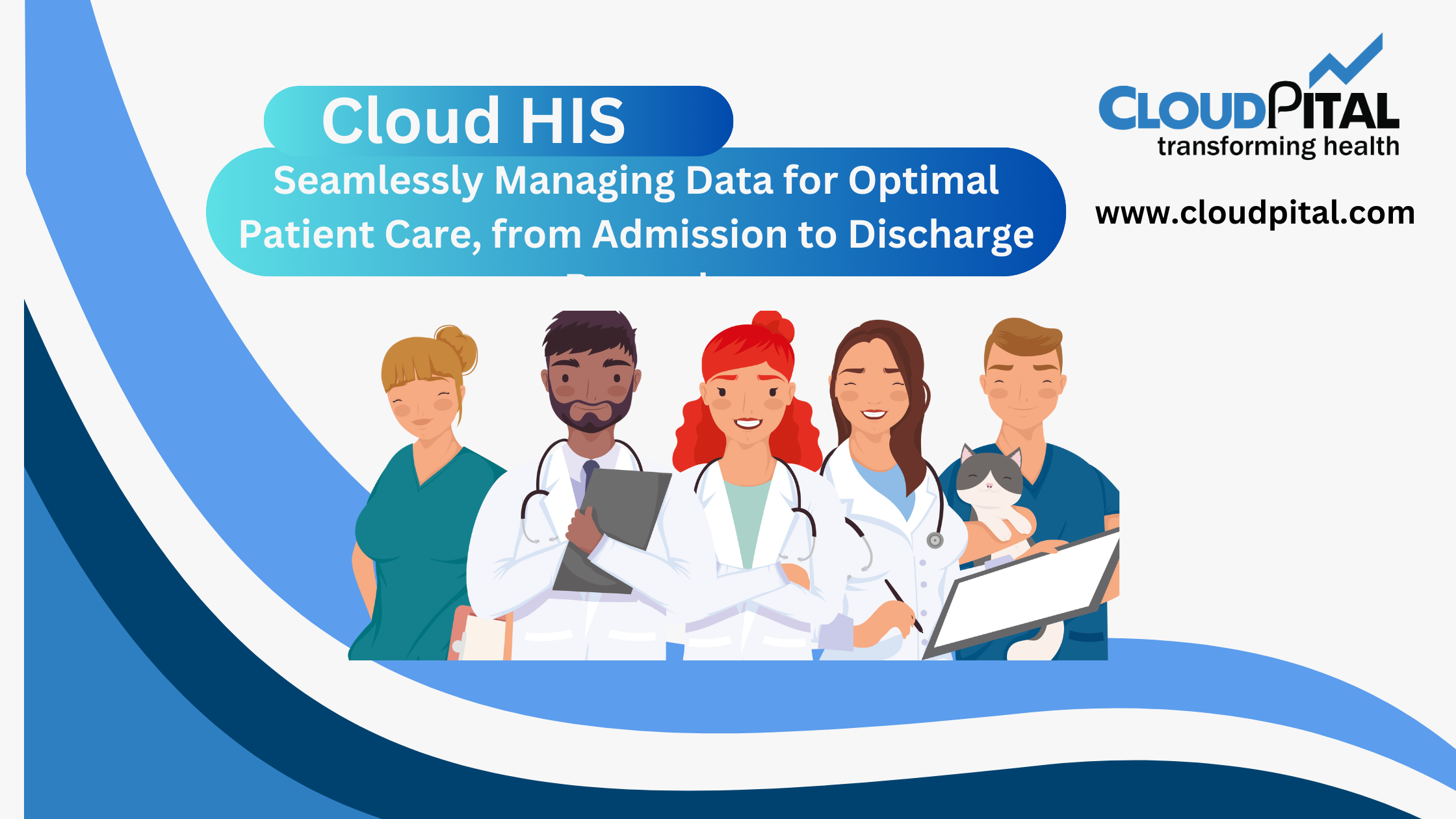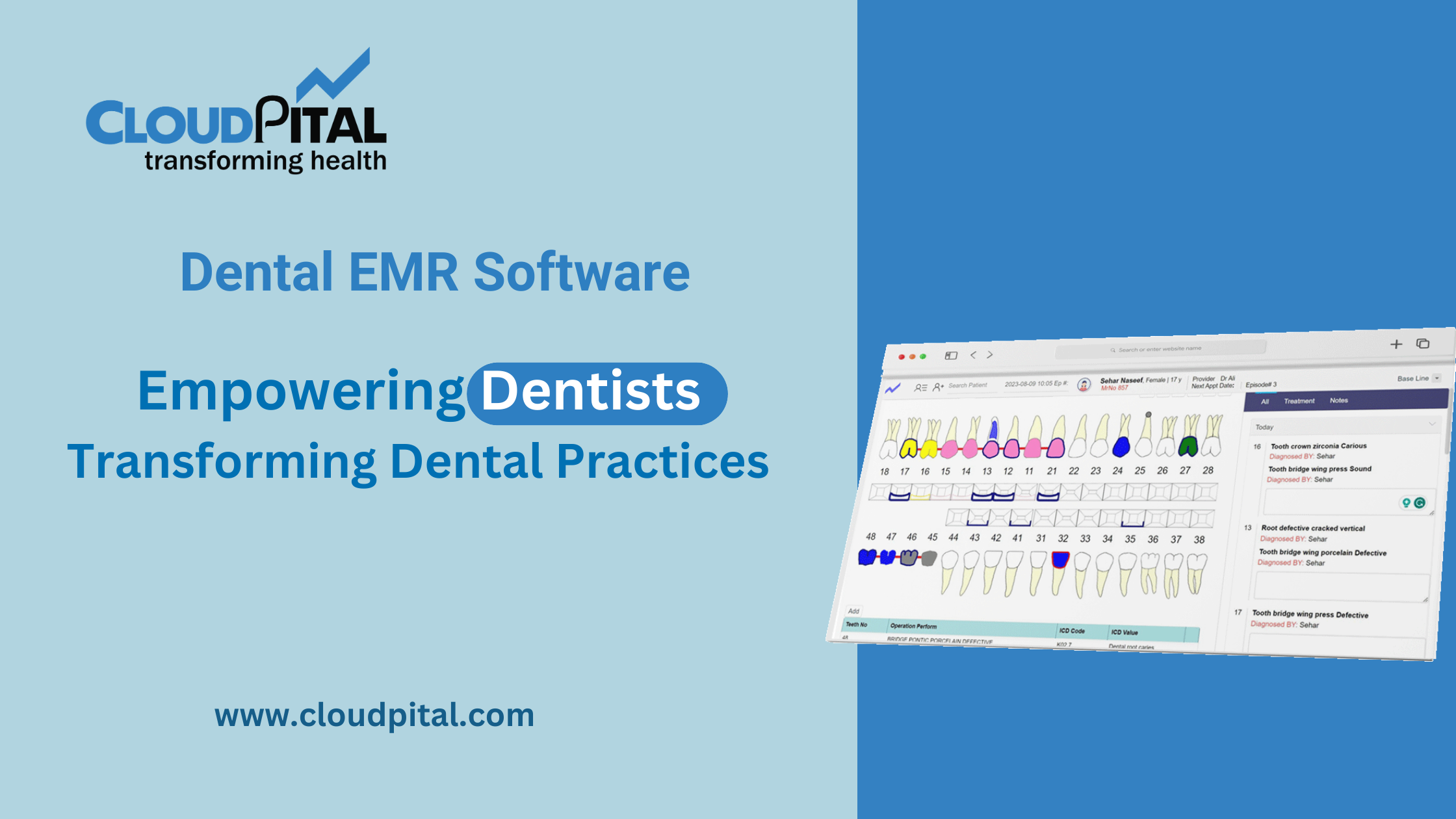Cloudpital # 1 is one of the top RCM is a critical process in healthcare that involves managing the financial aspects of patient care, from registration to billing and payment collection. Efficient RCM solutions are essential for healthcare providers to ensure financial stability, improve cash flow, and enhance patient satisfaction. Various technologies play a vital role in modern RCM solutions, streamlining processes, reducing errors, and providing actionable insights. This essay explores the key technologies commonly used in RCM solutions and their impact on healthcare providers.
Click to Start Whatsapp Chatbot with Sales
Mobile: +966547315697
Email: sales@cloudpital.com
Cloudpital # 1 RCM

Electronic Health Records (EHR) Systems
Electronic Health Records (EHR) systems are the backbone of modern RCM solutions. They store comprehensive patient information, including medical history, treatment plans, and billing details. EHR systems facilitate seamless integration of clinical and financial data, ensuring that accurate and up-to-date information is available throughout the revenue cycle.
Key Features
- Data Integration: EHR systems integrate clinical and financial data, enabling accurate billing and coding.
- Real-Time Access: Healthcare providers can access patient records in real-time, improving decision-making and reducing delays in billing.
- Error Reduction: Automated data entry and validation features reduce errors in patient information, leading to fewer claim denials.
Practice Management Software (PMS)
Practice Management Software (PMS) is designed to manage the day-to-day operations of healthcare practices. It includes features for scheduling appointments, managing patient records, and handling billing and insurance claims. PMS systems often integrate with EHR systems to streamline workflows and enhance the efficiency of RCM processes.
Key Features
- Appointment Scheduling: Automated scheduling tools help reduce no-shows and optimize patient flow.
- Billing and Invoicing: PMS systems generate accurate bills and invoices based on patient records and treatment details.
- Insurance Claims Management: Automated claim submission and tracking features improve the efficiency of the billing process.
Patient Portals
Patient portals are secure online platforms that allow patients to access their medical records, schedule appointments, and communicate with RCM providers. These portals enhance patient engagement and streamline the registration and billing processes, leading to improved patient satisfaction and reduced administrative workload.
Key Features
- Online Registration: Patients can complete registration forms online, reducing wait times and errors in data entry.
- Bill Payment: Patients can view and pay their bills online, improving cash flow for healthcare providers.
- Communication: Secure messaging features enable patients to communicate with their providers, enhancing care coordination.

Automated Billing and Coding Systems
Accurate billing and coding are essential for successful PMS. Automated billing and coding systems use advanced algorithms and artificial intelligence (AI) to ensure that medical services are accurately coded and billed. These systems reduce the risk of errors and claim denials, leading to faster reimbursement.
Key Features
- Automated Coding: AI-driven coding tools analyze clinical documentation and assign appropriate billing codes.
- Error Detection: Automated systems identify and correct coding errors before claims are submitted.
- Compliance: These systems ensure compliance with coding standards and regulations, reducing the risk of audits and penalties.
Insurance Verification Tools
Insurance verification is a crucial step in the RCM process, ensuring that patients are eligible for services and that the provider will receive payment. Insurance verification tools automate this process, reducing manual workload and minimizing the risk of claim denials due to eligibility issues.
Key Features
- Real-Time Verification: Automated tools verify insurance coverage in real-time, ensuring accurate billing information.
- Eligibility Checks: These tools check patient eligibility for specific services, reducing the risk of denied claims.
- Coverage Updates: Automated systems update insurance information regularly, ensuring that records are accurate and up-to-date.
Claims Management Systems
Claims management systems streamline the process of submitting, tracking, and managing insurance claims. These systems automate many of the tasks involved in claims processing, reducing the administrative burden on healthcare staff and improving the efficiency of the RCM process.
Key Features
- Automated Submission: Claims management systems automatically submit claims to insurers, reducing manual workload.
- Tracking and Follow-Up: These systems track the status of claims and provide alerts for follow-up actions, ensuring timely resolution.
- Denial Management: Automated tools identify denied claims and provide guidance on how to correct and resubmit them.
Payment Processing Solutions
Payment processing solutions enable healthcare providers to efficiently manage patient payments and improve cash flow. These solutions include tools for processing credit card payments, managing payment plans, and automating payment reminders.
Key Features
- Credit Card Processing: Secure payment gateways process credit card payments quickly and accurately.
- Payment Plans: Automated tools help set up and manage payment plans for patients, ensuring consistent cash flow.
- Payment Reminders: These solutions send automated reminders to patients for upcoming payments, reducing the risk of missed payments.
Data Analytics and Reporting Tools
Data analytics and reporting tools are essential for gaining insights into the RCM process and making informed decisions. These tools analyze financial and operational data, providing healthcare providers with actionable insights to improve efficiency and financial performance.
Key Features
- Financial Reporting: Comprehensive reports on billing, claims, and payments provide a clear picture of financial performance.
- Operational Analytics: These tools analyze operational data to identify inefficiencies and areas for improvement.
- Predictive Analytics: Advanced analytics tools use predictive algorithms to forecast financial trends and identify potential issues.
Robotic Process Automation (RPA)
Robotic Process Automation (RPA) is increasingly being used in Medical Solutions in Saudi Arabia to automate repetitive and time-consuming tasks. RPA tools use software robots to perform tasks such as data entry, claims processing, and payment posting, freeing up staff to focus on more complex activities.
Key Features
- Task Automation: RPA tools automate routine tasks, reducing manual workload and improving efficiency.
- Error Reduction: Automated processes reduce the risk of human errors in data entry and claims processing.
- Scalability: RPA solutions can scale to handle large volumes of transactions, ensuring consistent performance during peak periods.
Artificial Intelligence (AI) and Machine Learning
Artificial Intelligence (AI) and machine learning technologies are transforming RCM solutions by providing advanced capabilities for data analysis, predictive modeling, and decision support. These technologies help healthcare providers optimize their revenue cycle and improve financial outcomes.
Key Features
- Predictive Analytics: AI-driven tools analyze historical data to predict trends and identify potential issues.
- Decision Support: Machine learning algorithms provide recommendations for improving billing and coding accuracy.
- Fraud Detection: AI tools identify patterns of fraudulent activity and alert providers to potential risks.
Conclusion
The integration of advanced technologies in Revenue Cycle Management (RCM) solutions has revolutionized the way healthcare providers manage their financial processes. From electronic health records and practice management software to AI-driven analytics and robotic process automation, these technologies streamline workflows, reduce errors, and enhance financial performance. By leveraging these tools, healthcare providers can improve cash flow, reduce claim denials, and enhance patient satisfaction, ultimately achieving greater operational efficiency and financial stability. As technology continues to evolve, the future of RCM solutions holds even greater promise for transforming the healthcare revenue cycle.
Click to Start Whatsapp Chatbot with Sales
Mobile: +966547315697
Email: sales@cloudpital.com
What technologies are commonly used in RCM solutions? similar software solutions prices were updated on 2025-05-01T06:41:16+00:00 in Saudi Arabia in Mecca, Medina, Riyadh, Khamis Mushait, Yanbu, Jeddah, Dammam, Unaizah, Uqair, Ha’il, Ta if, Al Bahah, Dhahran, King Abdullah Economic City, Najran, Diriyah, Qatif, Khafji, Jubail, Abqaiq, List of Cities and Towns in Saudi Arabia, Ras Tanura, Turubah, Jazan Economic City, Knowledge Economic City, Medina, Khobar, Abha, Tabuk, Saudi Arabia, similar software solutions prices were updated on 2025-05-01T06:41:16+00:00 We also provide in Saudi Arabia services solutions company in Hafar Al-Batin, Udhailiyah, Al-Awamiyah, Hofuf, Hautat Sudair, Buraidah, Tayma, Duba, ‘uyayna, Saihat, Al-Kharj, Al-ula, Jizan, Rumailah, Ar Rass, Arar, Shaybah, Al Majma’ah, Rabigh, Dhurma, Haradh, List of Saudi Cities by Gdp Per Capita, Badr, Sudair Industrial City, Baljurashi, Shaqraa, Al-Khutt, Habala, Ad Dawadimi, Dawadmi, Layla, similar software solutions prices were updated on 2025-05-01T06:41:16+00:00 Price is SAR 100 and this was updated on updated on 2025-05-01T06:41:16+00:00 similar What technologies are commonly used in RCM solutions? software solutions prices were updated on 2025-05-01T06:41:16+00:00 in Saudi Arabia in Haql, Afif, Al-Abwa, Farasan, Al-Jaroudiya, Thadig, Al-Thuqbah, Al Wajh, Almardmah, Al-Zilfi, Muzahmiyya, Prince Abdul Aziz Bin Mousaed Economic City, Tharmada’a, Skaka, Um Al-Sahek, Sharurah, Tanomah, Bisha, Dahaban, Al Qunfudhah, Qurayyat, Saudi Arabia, Ha’ir, as Sulayyil, Al Lith, Turaif, Al-Gway’iyyah, Samtah, Wadi Ad-Dawasir, Az Zaimah, Safwa City, Jalajil, Harmah, Mastoorah, Hotat Bani Tamim, Jabal Umm Al Ru’us, Rafha, Qaisumah, Al-Ghat, Hajrah, Al-Hareeq. Excerpt: Jeddah (also spelled Jiddah, Jidda, or Jedda; Arabic: Jidda) is a Saudi Arabian city located on the coast of the Red Sea and is the major urban center of western Saudi Arabia similar software solutions prices were updated on 2025-05-01T06:41:16+00:00 Price is SAR 100 and this was updated on updated on 2025-05-01T06:41:16+00:00
6-24-2024



